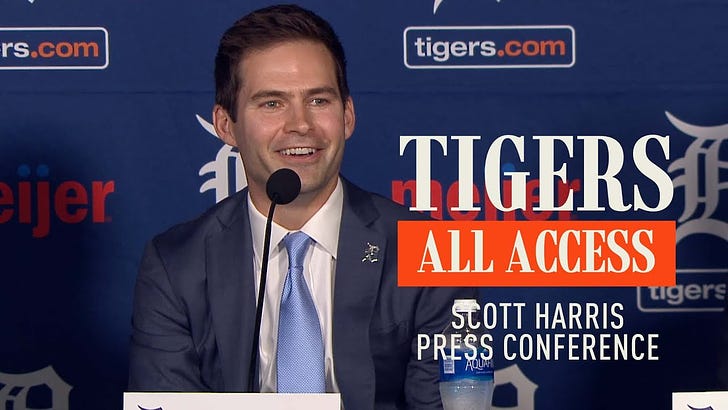Under The Knife 9/21/22
Scott Harris was introduced as the new PBO for the Detroit Tigers on Tuesday and he’s got a heck of a job ahead of him. The Tigers aren’t good and while they have some good young players, they largely haven’t been able to get them to the majors and keep them healthy. Casey Mize is example number one, but there’s more.
Harris came out of Theo Epstein’s Cubs front office and is known around baseball as a “contracts guy”, but people I know that have interacted with him universally praise him as smart, likable, and efficient. People often come up through front offices with a speciality, but then cross-train as they get closer to the top. It’s a smart thing, and it works. GMs and PBOs have to work and understand with all the silos inside a front office, so speaking the language of scouts, players, agents, and analytics are table stakes.
The sad part is that few, if any, have done that on the medical side. Given how important it is to the strength and success of a team, I’m surprised there’s not a path. I don’t expect an Athletic Trainer to suddenly become an AGM, but more have been given a seat at the table. I’d be curious to see someone from another part of the front office say “I’m going to spend a year with the medical staff”, but I can’t imagine it happening, even at the most progressive clubs.
Honestly, I’m ok with that. I would rather that team doctors and ATs, along with smart consultants, continue to work in the players’ best interests, rather than be subsumed in the continued upward pressure on front offices and the downward pressure on costs. I’d like to see a way for more people making decisions to really understand what the medical staff is doing, but that’s on them. That’s relationship building and a desire to learn. I know there’s several pitching coaches that have taken active interest in medically-focused conferences, and there’s where I think we’ll see the most gains.
All the luck in the world to Harris, the Tigers, and the Tigers fans. That’s an underrated park and city, but it’s not going to be an easy task. I’m not sure if there will be much front office turnover besides this. I asked trusted colleagues Joe Sheehan and Maury Brown - god, I wish I could just publish our text exchange - but aside from some wishing and one possible change, we essentially agreed that this could be a very quiet off-season in that regard.
For now, on to the injuries:
SPENCER STRIDER, SP ATL (strained oblique)
Spencer Strider has been the breakout star of this season, jumping from the pen to the rotation and dominating hitters along the way to 200 strikeouts. His numbers look remarkably old school, aside from the innings totals. However, a mild oblique strain might be a sign that he’s tiring some, even while his stuff stays high level.
This isn’t an unusual pattern. Pitching is not a “to failure” activity. If you go do a bench press, it’s common to do it until you can’t lift it more times or you can’t lift a certain weight. Runners collapse at the end of a marathon or a shorter distance race alike. Pitchers don’t get to the point where they can’t get the ball to the plate. Instead, the subtle changes of fatigue make an athlete work harder to get the same result, which is why pitching into fatigue is so dangerous.
The Braves are being smart, pushing Strider back from his scheduled Friday start and saying “TBD” on when he’ll be back. It’s easier since they have a deep bench, putting Bryce Elder in on Friday and perhaps beyond. An IL stint is unlikely but possible, with the hope that the extra rest and treatment clears things up and keeping him close to schedule and workload, even if he’s not pitching in games. For an athlete with such key hip/shoulder separation, even a minor strain could lead to major issues.




